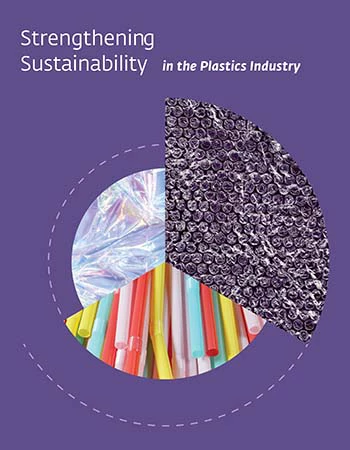Growing global concerns over climate change are putting an increasing focus on sustainability. This report is part of an occasional series on sustainability in industry which examines the opportunities and challenges facing various industrial sectors and the role that the International Finance Corporation can play to support their efforts and contribute to a greener planet.
Plastics are the building blocks of many value chains, including packaging, health care, construction, aviation, logistics, clothing, and increasingly, the recycling industry. They play a vital role in driving industrial development, creating jobs, expanding opportunities, and generating wealth to improve people’s lives. But as the use of plastic has increased, so too have the environmental and social costs. The production process uses petrochemicals as a raw material and generates greenhouse gas emissions. Perhaps the biggest cost is the waste generated by discarded plastic goods. Most of the common plastics of today are not fully biodegradable, and that has created a cascade of environmental, financial, and health problems around the world.
With support from the International Finance Corporation (IFC) and the private sector, the industry is embracing initiatives and investing in novel technologies that can reduce plastic’s environmental footprint and provide broad economic benefits while meeting the growing demand for products made of plastic.
Contents
- Sector Background
- Sustainability
- Challenges & Opportunities
- IFC Role
- Conclusion
Click here to access all reports in the Sustainablity Series
